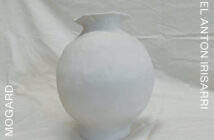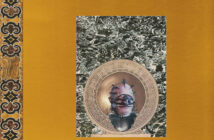
Heirs dwell so deeply on inky mood and atmosphere that you can forget the songs are building ever so slowly to rapturous rupture. Dubbed instru-metal and post-rock in the past, the Melbourne band is harder to pin down here, ranging from score-y meditations to doom-y dissonance. The instruments at hand are guitar, bass, drums, synth, and electronics, with some theremin from the Night Terrors’ Miles Brown. As heralded by the album’ harrowing sleeve images, there are heavy themes at play, and yet they’re bound to be only as obvious as instrumental music can make them. Rather, this beautifully produced odyssey will mean different things to different people.
That said, darkness is the overwhelming texture of choice, with an inevitable release that can materialise in the form of Explosions in the Sky-esque guitar (“Dust’), piston-like industrial stabs (“Tyrant’), or a simple gnashing of instrumental teeth (“Men’). The release comes more quickly on “Burrow’, a chugging feat that recalls the popular string piece “Lux Aeterna’ from Requiem for A Dream, only with guitar leading the charge. At times something will foretell a noisy climax, like the drums on the previously mellow “Drain’, but Heirs achieve much more subtle, gradual shifts as well.
As satisfying as it is to hear to each track run its course, some songs are most intriguing at the very start. Take the title track, which rumbles with natural reverberation and a clean-cut repetition that really gets under one’ skin. Ignoring its creeping distortion, the melody’s eerie clarity recalls a bit of score John Carpenter might have once written for one of his films. “Mother’ also has a lovely opening, almost disarmingly so. It progresses from New Age-y to shoegaze-y before being scarred by feedback and eventually down-shifting back to echoed drums. It’s also often at first that there’ the most space surrounding the band’ meticulous, deliberate interplay.
A steady touring presence in Europe, Heirs have checked in with a sophomore album that stuns more often than it soothes. And yet it’s capable of both, and much more.
Doug Wallen



